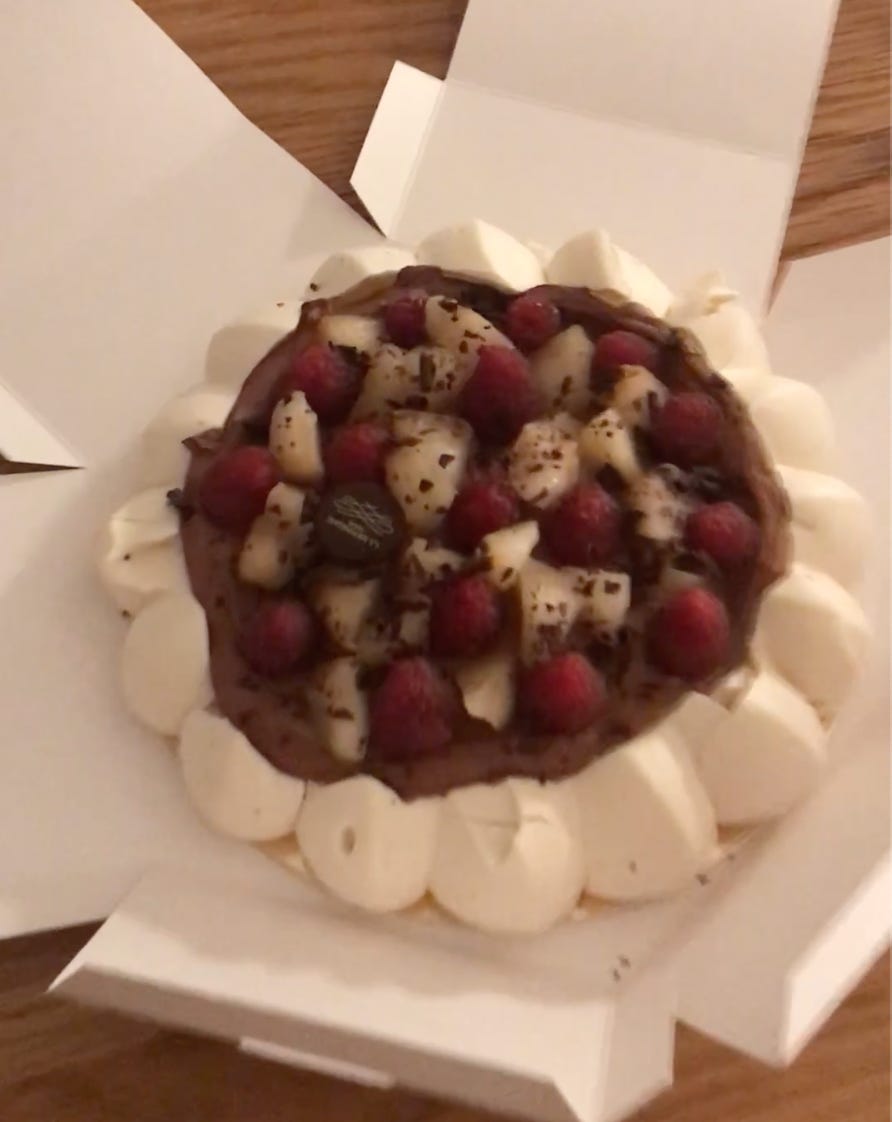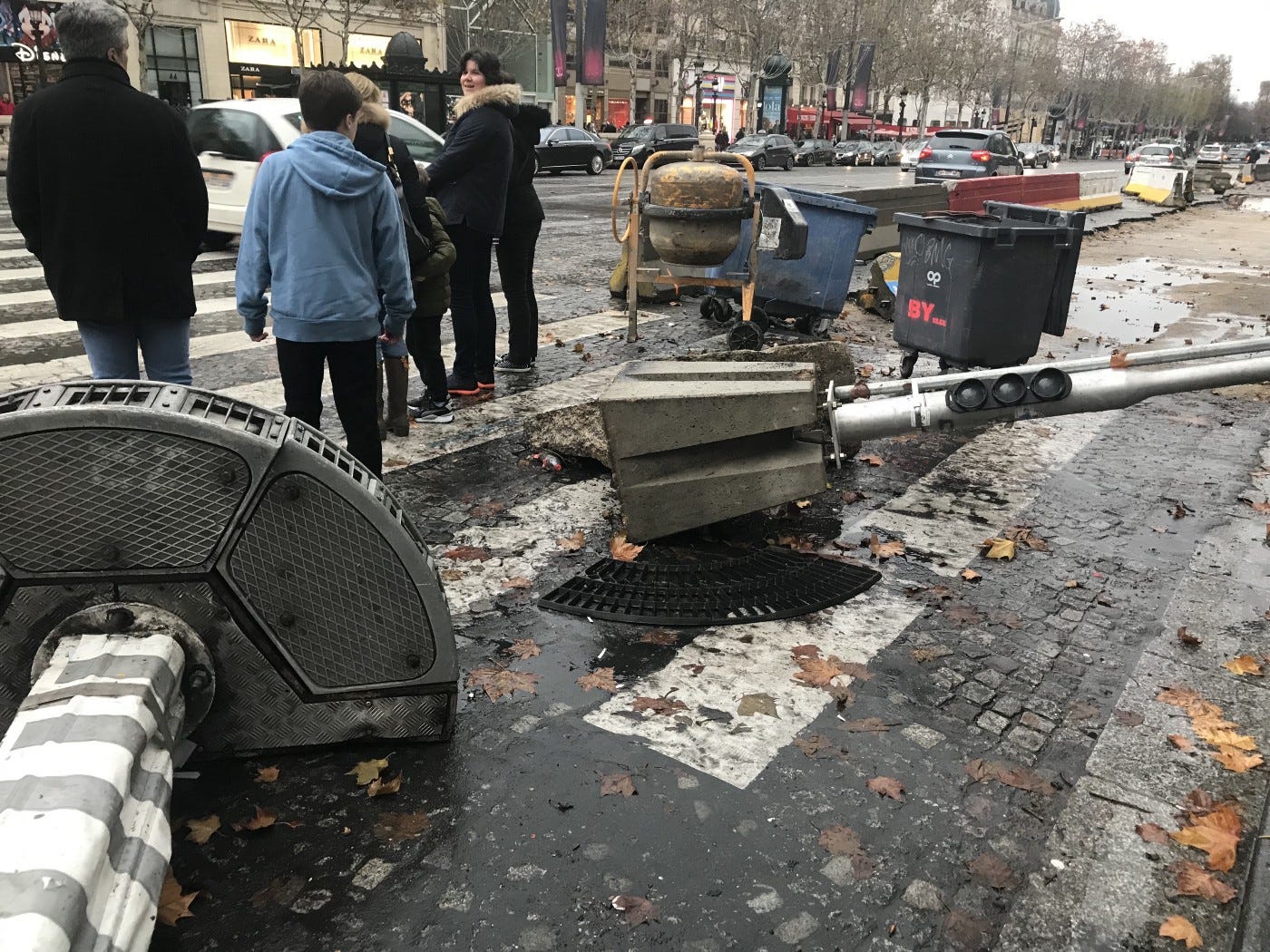If you like this post, consider clicking the ❤️ button above so more people can discover it on Substack. Thank you! ~Michelle
A few years ago I was living in Paris, trying to write but not getting anywhere. Ever since my family’s move from California to France for work, I had felt unsettled, distracted, and overwhelmed. Setting up house, making doctors’ appointments in a country where you have to bring your own needles to the doctor’s office, dealing with French bureaucracy, and trying to communicate had thrown me for a loop.
During the second week of November, I got an email from an editor friend in Alabama, reminding me that my story for a new anthology he was editing was due in two weeks. I’d completely forgotten that I was supposed to be writing this story. The story had to be unpublished, so I couldn’t just dig something up from the archives. I had to write something completely new. I’ve been writing stories for more than half of my life, so that’s a lot of years of writing stories. How hard could it be to just buckle down and do the thing I’ve always done?
Pretty hard, actually. For several days, I ruminated over what the subject of my story would be. I couldn’t get a grip on it. I didn’t have a character, and I didn’t have a situation. For a story to happen, something has to happen to someone in someplace. I had one part of the equation — the someplace, because a requirement of the anthology was that the story had to be set in Alabama — but beyond that, I was lost.
For a story to happen, something has to happen to someone in someplace.
Thanksgiving eve came around, and I hadn’t written a single sentence. We had family in town, and we were hosting Thanksgiving dinner, and I had to figure out how to work our oven (it had nine settings). I didn’t know what to say at the boucherie or how to even begin to order meat. I did know that turkey is dinde, but I hadn’t seen dinde anywhere in Paris, except weird, sad, dinde patties, and I wasn’t about to serve turkey patties on Thanksgiving. My husband was on a work trip and wouldn’t arrive home until noon on Thanksgiving day. Which meant I had to pull this whole Thanksgiving dinner thing off myself. I figured if I couldn’t have turkey, at least I would make a pie. I decided it would be a pecan pie.
So there I was on Thanksgiving eve, at our tiny neighborhood grocery store, trying to find pecans to make a pie. I didn’t find them. I did, fortunately, find wine. Good wine is easy to find in French grocery stories, which almost makes up for everything you can’t find.
As I was lugging the bottles of wine home through the frigid rain, I remembered a scheme my mother had cooked up when I was eleven or twelve years old. She wanted to buy ten acres of land on what was then the outskirts of Mobile, Alabama. The land was populated by pecan trees, and her plan was that we would harvest the pecans and sell them to pay off the land, and then we’d build a house there.
We never built a house, and I have no idea what happened to the land, but my sisters and I did spend one sweltering summer collecting pecans. We would gather the hard shells from the ground and drop them into giant black garbage bags. After a few hours, we would have enough pecans to load the garbage bags into the Buick station wagon and drive out to the nut processing facility, where the quality of the nuts would be inspected, the bags weighed. I remember it was exciting to sell something, but I also remember that we earned only pennies per garbage bag full of pecans.
On that Thanksgiving eve in Paris, while I was in the kitchen chopping the radishes (there are a lot of vegetables you can’t find in Paris, but you can always find radishes), I kept thinking about those pecan trees, that land, the black plastic garbage bags, the unresolved mystery of one summer spent gathering pecans from land mysteriously disappeared from our lives. And it gave me the first sentence of a story. I wrote the sentence in my head, as I often do. I told myself, “Go write that down,” but the radishes got in the way, so I didn’t write it down.
Then Thanksgiving came, my husband’s flight landed, we ran out and got three poulets, more wine, and a lovely meringue with pears on top (no pie). The next few days were taken up with family (thank goodness), and then school, and then the second weekend of Paris protests, which happened four blocks from our apartment. I woke on Saturday to the roar of crowds on Champs Elysees, and when I opened the windows I smelled smoke. My husband got tear gas in his eyes when he went out to get milk, and we heard helicopters hovering over our building all day. The week before, we’d walked home through milder protests, dodging riot police, which made us feel ever so slightly more Parisian.
Then, on Monday morning, I thought, “Wow, this story is due, like, tomorrow.” So I made a big pot of coffee, sat down in bed with my laptop, and typed the first sentence, the one I’d composed in my head on Thanksgiving eve. A second sentence followed. Then a third. The sentences kept coming. 3,800 words and four cups of coffee later, I had a complete draft of my story.
Ideas or images or moments that don’t really belong together in any logical way somehow come together, and that combination creates a sort of whirlwind that did not previously exist, a little narrative storm in the mind.
That night, when my husband got home, I told him, “I wrote a story!” My husband, who is very supportive, who is always telling me to stop everything else and “just do the writing,” offered to read it.
“I’m not sure it’s really a story,” I said.
He read it, and then he said, “It’s definitely a story.”
“I haven’t written the ending yet,” I said.
“Yes you have,” he said. He pointed out the two paragraphs that needed to go, which left a paragraph I didn’t consider to be the end at the end. Sure enough, he was right, there was an ending. I’d just buried it under a bunch of other stuff.
Story tip: if you can’t figure out how to end your story, try omitting a few paragraphs. You may have buried your story’s true ending.
The next day I took another look at what I’d written. Okay, I had to admit, it was a story. My Paris-induced literary doldrums had finally passed. I’d broken through, broken out of it. It wasn’t the Seine or the art or the wine or the Eiffel Tower or the cafes that inspired me. It was a long-buried memory, a snippet of something barely understood, bubbling up from the subconscious. It was the pecans — or the absence of pecans. But if I hadn’t been in a dingy grocery store in Paris, unable to find the pecans, lost in translation for the thousandth time, there never would have been a seed for that particular story. There would have been another story, sure. I would have hammered something out somehow. But it wouldn’t have been that story, which required the incidental absence of one thing and the incidental memory of another vaguely related thing in order to take shape.
That’s the strange magic of inspiration. Two or three or four ideas or images or moments that don’t really belong together in any logical way somehow come together, and that combination creates a sort of whirlwind that did not previously exist, a little narrative storm in the mind. A story emerges from it. Every time you manage one story, no matter how messy, no matter how flawed, it reminds you that there are other stories that only you can write, because you’re the only one who will happen upon the exact memory, the exact moment, the exact series of conditions and turns of phrase that are required for that particular story to exist. Every time you finish one story, it reminds you that, with a little patience and a sense of openness to strange and surprising associations, you can write another.
If you liked this post, you might enjoy Monet and Parc Monceau on my other newsletter .
Michelle Richmond is the New York Times bestselling author of two story collections and six novels, most recently The Wonder Test, an Amazon Editors’ Pick. She mentors beginning and experienced writers through Fiction Master Class.
Current course offerings:
Launch your Substack in my 4-week online course, Writing for Substack
Learn to write and publish short fiction in Master the Short Story
Write your novel or memoir in five months in Novel in Five.









Lovely story and very insightful. I also loved the way you narrated your encounter with French bureaucracy in the post you linked. I can imagine for an American it must be bonkers. Back to this piece, I find it very interesting how your not being able to find pecans brought your mind back to your childhood and that project with the plot of land that never came to fruition. I wonder if, in the deep corners of your mind, the two pecan episodes got connected by this element of the "unachievable". Embarking on a project that never was. Crazy how our mind works! The amazing thing is that you were able to turn it into a story and give new life to events that were seemingly unconnected but worked in perfect harmony together.
I'm fascinated with the strange ways our mind works. And I'm in awe that you wrote a story in a day. For some reason I struggle with short stories. I can get a couple chapters of a novel on the page in a day, no problem (she said confidently, haha) but short stories are a different beast. I read your blog from Paris (I think that's how I discovered you) and enjoyed it.